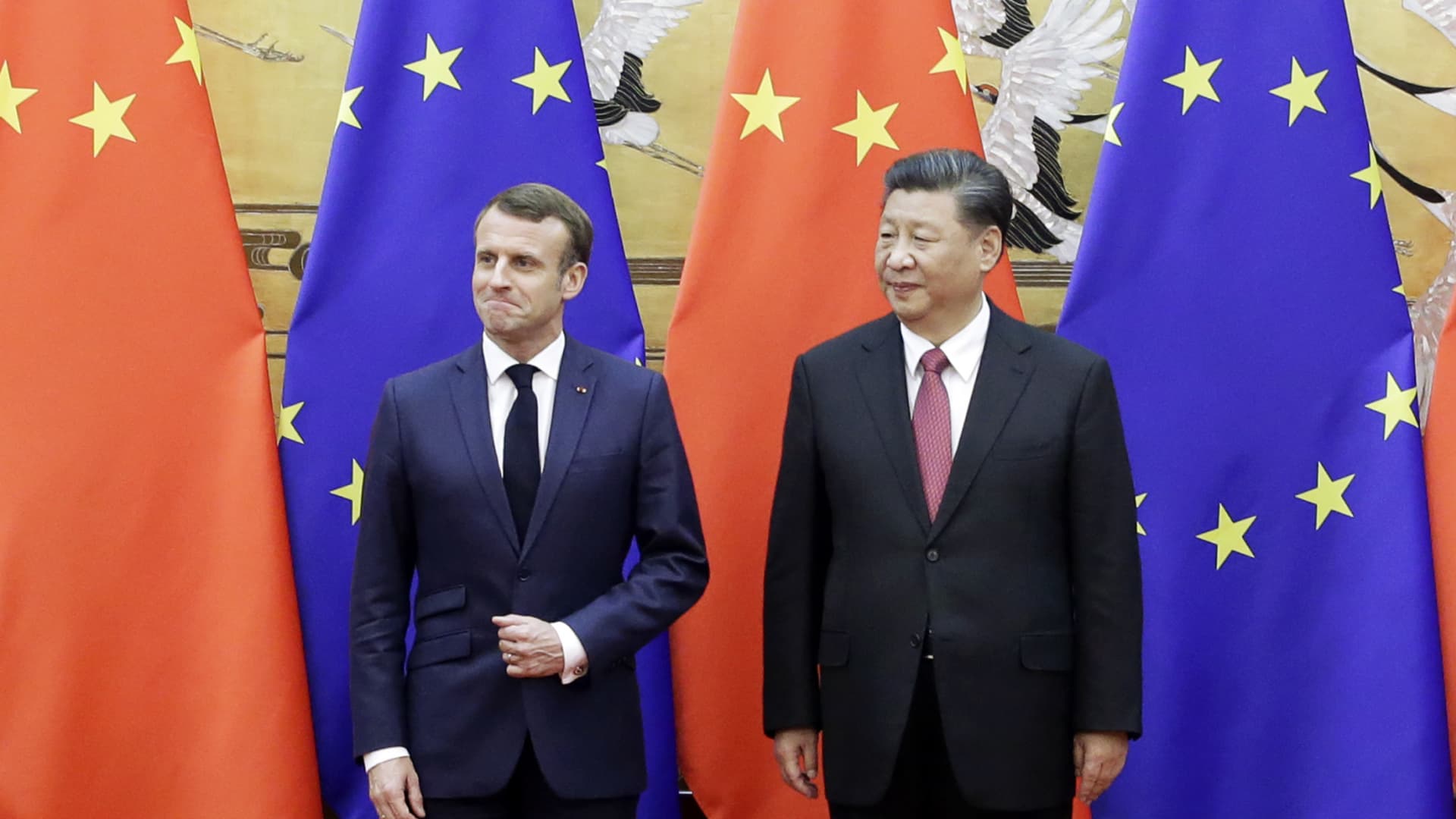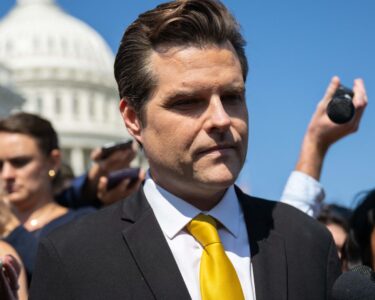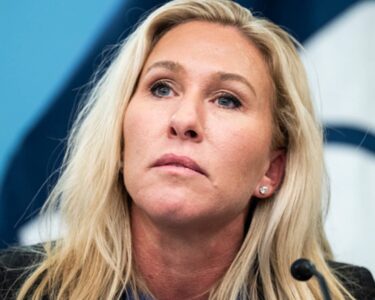European officials are traveling to China in the hope of persuading Beijing to denounce Russia’s invasion of Ukraine and cool its recent kinship with the Kremlin.
The 27-member bloc walks a tightrope, looking to develop economic ties with China but also reaffirming a close political and cultural relationship with the United States. This has became particularly difficult with the U.S. administration ramping up its anti-Beijing rhetoric and, even more so, in the wake of Russia’s invasion of its neighbor.
“It is clear that our relations have become more distant and more difficult in the last few years,” Ursula von der Leyen, the president of the European Commission, said in a speech Thursday ahead of her trip to Beijing this week.
“We have seen a very deliberate hardening of China’s overall strategic posture for some time. And it has now been matched by a ratcheting up of increasingly assertive actions,” she added.
Von der Leyen is traveling to Beijing alongside France’s President Emmanuel Macron this week. Spain’s Prime Minister Pedro Sanchez met China’s President Xi Jinping last week. Europe’s top foreign affairs diplomat, Josep Borrell, is heading to China next week.
“A lot of Europeans [are] going to China,” Borrell said Tuesday, adding that they have a clear message.
“Its position on Russia’s atrocities and war crimes will determine the quality of our relations with Beijing. In the meantime, the European Union stands united and our transatlantic community remains also united,” he said.
China has failed to condemn Russia’s onslaught in Ukraine. In a visit to Moscow in March, China’s leader Xi Jinping referred to his Russian counterpart as a dear friend.
Beijing in February proposed a 12-point peace plan for the Ukraine war. The plan fails to specify whether Russia needs to leave Ukrainian territory for a deal to be completed. Ukraine has made it clear it will not agree to any peace deal that does not involve regaining full control of its territory, including Crimea which the Kremlin annexed in 2014.
“Europe has converged quite a lot to the position of the United States,” Niclas Poitiers, a research fellow at Bruegel, told CNBC’s “Squawk Box Europe” Monday, adding that Brussels wants to reduce dependencies on China. The EU was heavily reliant on Russia for energy and it now wants to avoid similar mistakes with other parts of the world.
“Overall, there is a consensus that we need to do something about our overreliance on China and ensure they don’t blackmail small member states,” Poitiers said.
A recent example of the increased convergence between the U.S. and the EU is the decision in the Netherlands to go ahead with export restrictions to China, following a move stateside aiming to curb Beijing’s access to the most cutting-edge microchip production.
In addition, the United States has also became Europe’s main provider of liquefied natural gas (LNG) last year as the bloc looked to phase out Russian hydrocarbons.
There’s also an increased, though natural, cooperation between EU nations and the U.S. on security matters given most of them are also members of NATO.
“U.S. – European Union relations have never been stronger or more important to advance our shared interests,” U.S. Secretary of State Antony Blinken said in Brussels Tuesday.
Blinken is meeting his fellow NATO counterparts this week, where they will discuss further support for Ukraine as well as ramping up financial contributions to the military alliance.
But moving closer to the U.S. is not an easy decision for European leaders. In 2022, China was the largest source of EU imports and the third largest buyer of EU goods, highlighting the economic importance that Beijing has for Europe. This is particularly relevant when economic growth in the EU is vulnerable to the ongoing war in Ukraine.






